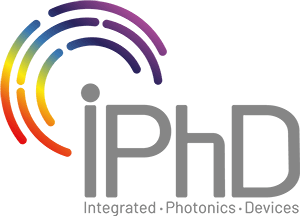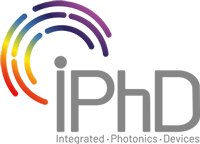November 21, 2023 IPhD plays essential roles in LIF’s Photonics and Entrepreneurship Industry Workshop
From assuming roles as Chairs and Speakers to actively participating as judges in the LIF Empreende Program, IPhD’s contributions underscored their dedication to innovation and fostering entrepreneurial spirit within Phthotonics.
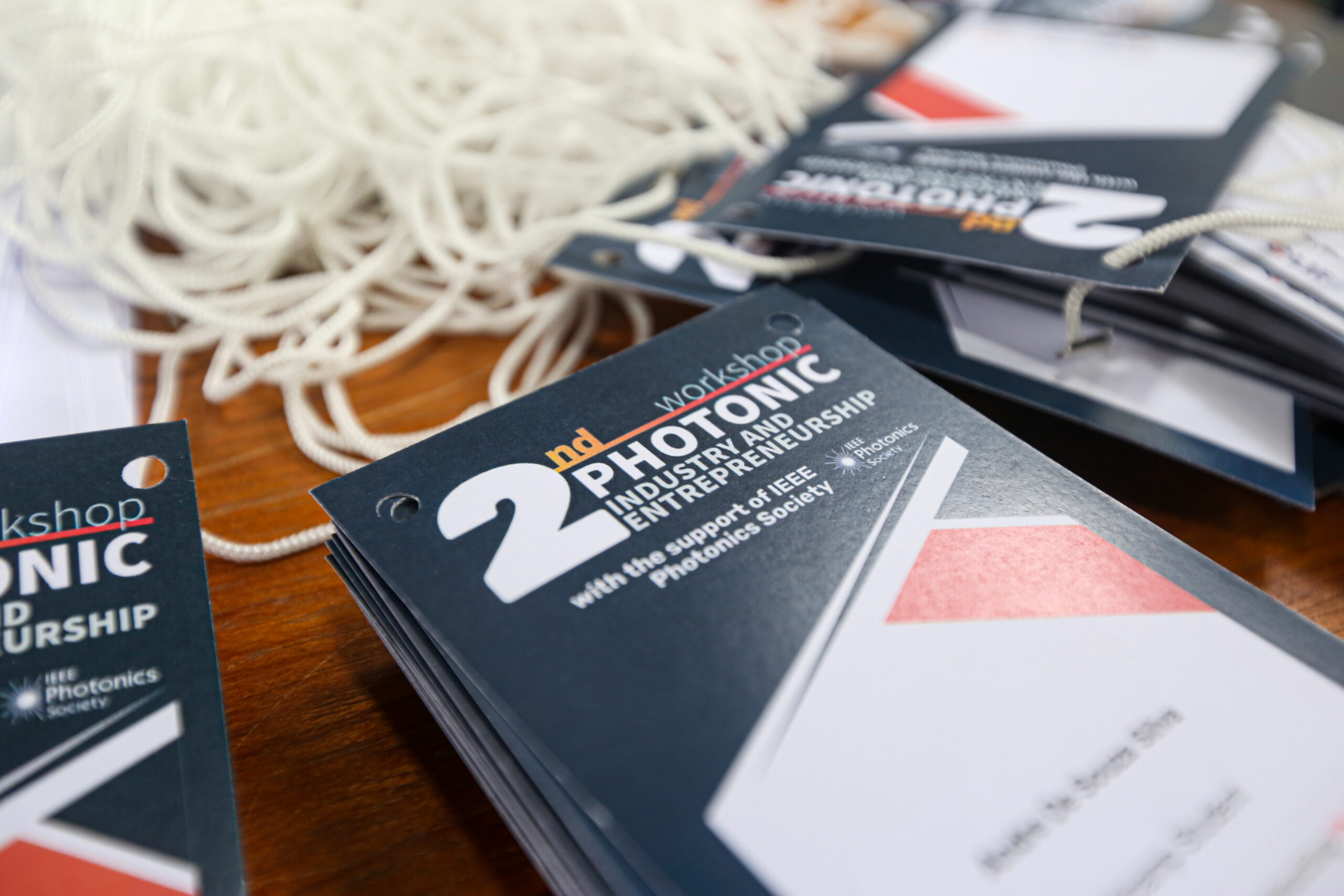
Text by Greta Garcia
Photographs by Pedro Amatuzzi
Between October 30th and 31st, the Gleb Wataghin Institute of Physics had the privilege of hosting the 2nd Photonics and Entrepreneurship Industry Workshop, promoted by LIF-UNICAMP in partnership with IEEE Photonics Society. Over these two days, IPhD members played essential roles as Chairs, Speakers, and finalists in the LIF Empreende Program.
The Workshop’s objective was to promote innovation and entrepreneurship, with a focus on the field of Photonics, sharing trends, insights, and valuable lessons for students and entrepreneurs interested in launching technology-based businesses stemming from their research.
To foster an entrepreneurial culture and provide tools for evaluating new business ideas, the event allowed the participants to create connections during relaxed networking moments with invited companies. Additionally, various lectures, training sessions, and mentoring were conducted by experts.
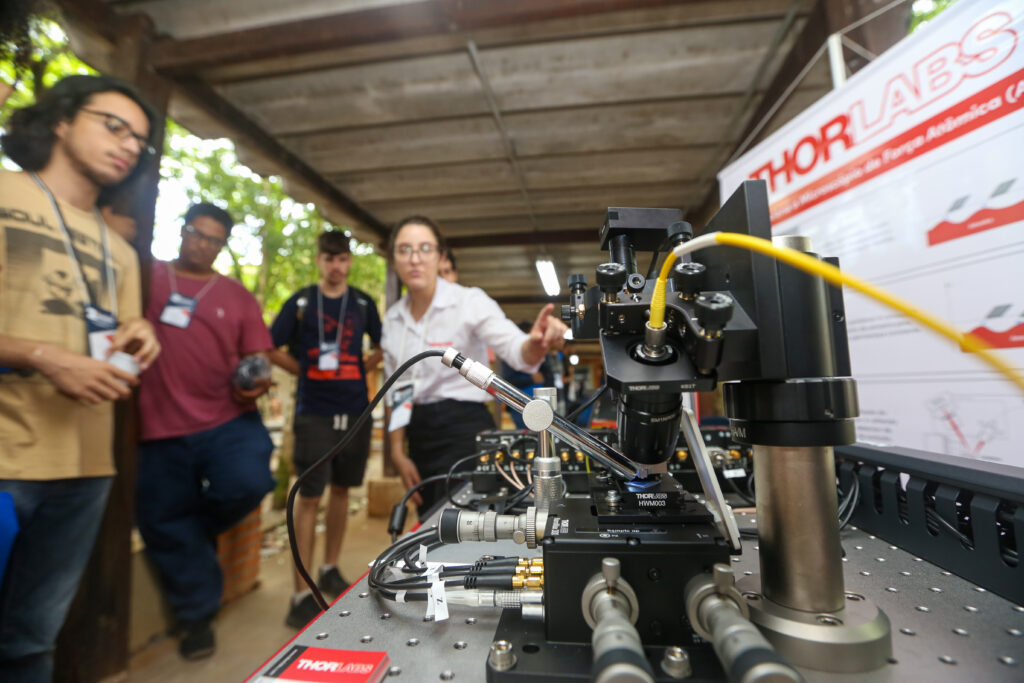
The chosen theme for opening the workshop was “Overview and key trends in the photonics industry“, composed by the panels Photonics Business Experience in Australia, Europe, the United States and Brazil, and ESSS | Ansys Software: Computer Simulation for Photonic and Optical High-End Applications.
The first day saw the active participation of several IPhD members, including Newton Frateschi (Coordinator of LIF – Sisfóton – MCTI) and Dr. Gustavo Wiederhecker (Professor at the Gleb Wataghin Physics Institute at Unicamp) as Chairs for the Photonics Business Experience panels. Also, The Ansys Software panel was chaired by Ursula Salazar (PhD Student at Lemac).
Day 1 concluded with the final presentation of the Demo Day in Photonics Startups, where the Alfa Sense startup, chosen for the Best Business Model, received recognition. As one of the judges, IPhD member Thiago Alegre, a Professor in the Department of Applied Physics at Unicamp, and also a member of the Brazilian Physics Society, the Brazilian Photonics Society and the Optical Society of North America, played a crucial role.
Day 2 centered around the theme “The concepts of entrepreneurship & turning your photonics research into a business program” and was divided into four panels: How to Create Your Business Model with the Lean Canvas, Developing A Good Pitch: A How-To Guide For Entrepreneurs, Design Thinking and Innovation, Investment & Intellectual Property. This time, Newton Frateschi switched roles, becoming a speaker to share his expertise during the first panel.
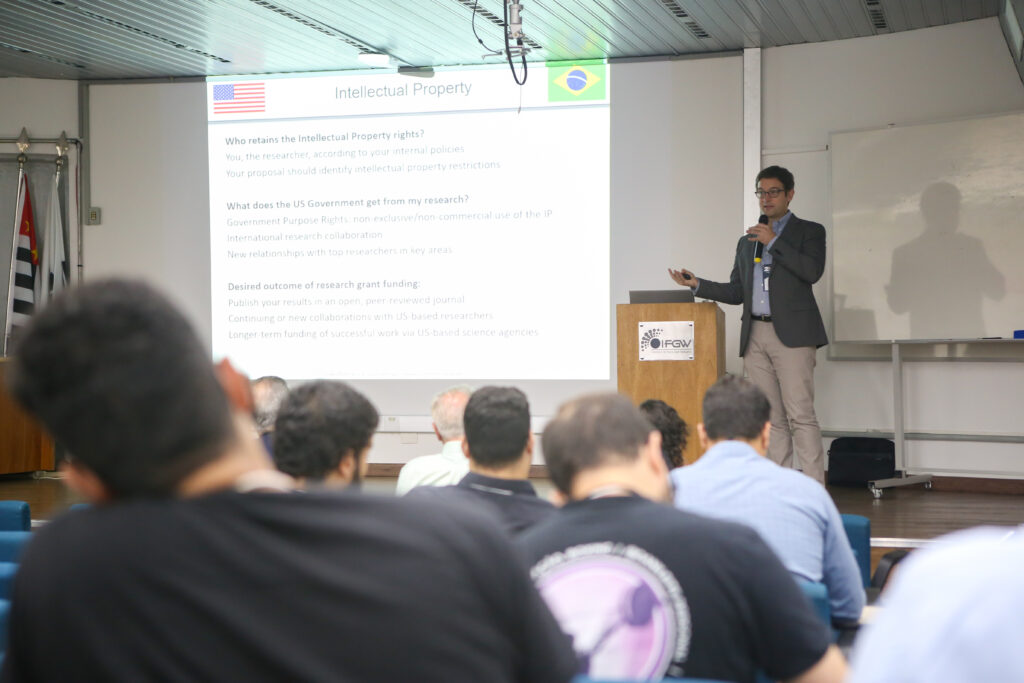
To wrap up the final day of the Workshop, participants in the LIF Empreende Program gave their final Pitch presentations, aiming to transform scientific research into successful ventures. In the Best Business Model category, 3S Health emerged victorious, earning a cash prize. Meanwhile, NIT/Mandic won the Popular Vote category.
IPhD was once again represented as one of the judges, with Christiano Matos, an Associate Professor at Universidade Presbiteriana Mackenzie, focusing on optical characterization, 2D materials, and nanophotonics for sensor and photonic device development.
It’s worth highlighting that the Soliton team, one of the LIF Empreende finalists, was also composed of IPhD members, including researchers and postgraduate students. Pedro Pinho, Felipe Santos, and Eduardo Gonçalves developed Soliton as an innovative solution based on coupled resonant microcavities (photonic molecules) with integrated microactuators, offering precise control of optical properties, ultimately making them versatile for light manipulation.
The active participation of IPhD in the 2nd Photonics and Entrepreneurship Industry Workshop underlines its dedication to innovation, entrepreneurship, and cutting-edge research in Photonics. This collaboration reflects its capacity to contribute to industry advancements and establish meaningful connections between academics and entrepreneurs, driving future successes and advancements, particularly in Brazil.
